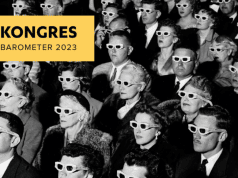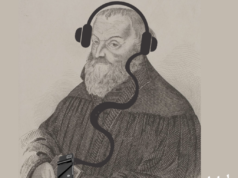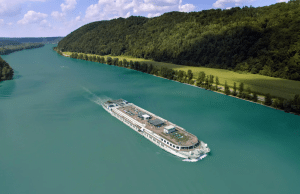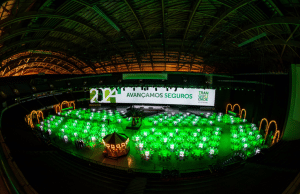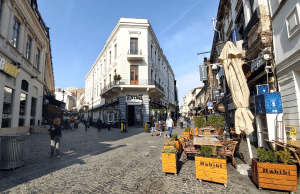Croatia’s azure Adriatic coastline dotted with over a thousand verdant islands has already won a spot on the world tourist map – will July’s 2013 EU entry of Croatia further boost the tourism sector?
Due to its abundant natural resources, Croatia is often called a “national park of Europe”. Its accession into the EU as a full member in July 2013 is expected to induce European tourism demand on Croatia as a holiday destination. But what about Croatia as a new European Business and MICE destination?
The EU entry will certainly improve Croatia’s image as a tourist destination and provides a key support for Croatia’s economy. One positive impact is definitely the unified taxation and custom rules within the EU. I am sure that every hotelier or DMC in Croatia had the experience that important conference materials for a congress or meeting were stopped at customs, as clarification was not clear, papers were missing, customs office hours….etc. – but these times are now over.
EU membership might, however, have some negative impact too – Croatia has had to introduce visas for tourists from Russia, Ukraine and Turkey to comply with the bloc’s rules. These markets in particular delivered a travel increase, in the past years, to Croatia. An easy visa application process at Croatian Embassies or on airport arrival could help to keep this travel trend stable. According to ICCA the Russian market is growing fast, as approximately 73% of all Russian corporate meetings are still held outside Russia, as there are limited facilities available within the country. Croatia should not miss this potential by having strong and difficult visa regulations.
But my question now is if Croatia is ready for some changes on their supplier markets – has Croatia sourced for new upcoming, expanding EU markets and has it used all the EU Tourism possibilities?
When discussing the trends and skill needs in tourism, it is always interesting to start with some facts and figures on the current situation of European tourism. The general outlook for this dynamic sector is, in relation to other traditional European economic sectors, positive and quite optimistic for the coming years. Tourism is generally and globally acknowledged as being one of the (very) few economic sectors that has more than significant growth prospects and is characterised as a catalyst for peace and prosperity.
Despite the increasing competition in overall world tourism, Europe is still the number one destination. It has the highest density and diversity of tourist attractions. Tourism, however, is still an internal European phenomenon, as 87% of the tourists who visit Europe come from EU countries. Although most travel is still undertaken for leisure, 20% is for business. Certain trends in European tourism have been identified, suggesting that tourist arrivals will double in the next 25 years and that this doubling will take place in Europe – which means that Croatia will also be affected by this development.
What about Congress and Business Tourism demand for Croatia after entering the EU?
Congress tourism is an important part of business tourism in Europe. In recent years it recorded huge growth across the world. Congress tourism contributes to the transmission and exchange of experience and knowledge, as well as generating employment in the area of the congress site. Its development has positive influence on tourist results in the Republic of Croatia.
According to the Croatian Bureau of Statistics, in the period from January to March 2013, compared to the same period of 2012, the total number of business meetings held in the Republic of Croatia increased by 15.6%. In the same period, the total number of days at the business meetings decreased by 1.3%, while the total number of participants at the meetings increased by 4.3%. Each meeting lasted two days on average. By professional organiser, 70.2% of business meetings were organised by corporations and companies and 29.8% by associations and institutions. According to type, the most meetings, 60.0% of them, were business meetings and 36.4% were congresses/conferences. As we can see, still potential for growth!
The congress industry generates a number of main features. First of all, occupancy of the capacity is in the pre- and post-season. It can then also be noted that there is significantly greater consumption by congress participants than by tourists on holidays. An additional advantage is that each business meeting includes short trips, so participants have a chance to see the natural beauty of Croatia. Satisfied congress and other business meeting participants are the best promoters of Croatia as a tourist, business, scientific and cultural destination.
The most important factors influencing organisers when deciding in which country to host an international event are:
- cost
- connectivity
- quality of accommodation
- quality of service
- quality of meeting facilities
- availability of venues/hotel rooms
- travel time to destination
- security/safety
- time of year
- transport at destination
- weather and range of leisure options
All of above-mentioned Croatia can offer!
Therefore, Croatia can expect great opportunities ahead from increasing demand for congress tourism. A significant impact on the development of tourism in Croatia is, and must be, congress tourism. Croatia is an ideal destination for this type of tourism. It has good transport links, good infrastructure and supporting content such as cultural and historical heritage and natural attractions.
By following the MICE trends for 2013 – where it’s becoming more about developing instant, personalised & bookable services – Croatia should develop as the new EU MICE rising star on the blue European flag. For Croatian destinations’ MICE and tourism companies, what matters is offering customised and relevant information by gaining access to large amounts of data from multiple EU sources. DMCs and congress organisers will now get direct access to different EU Programmes, Fronds and Associations, which are offering huge potential for growing business.
Now it’s time to switch the Croatian holiday image to a Business image – so how is this possible?
Let’s have a look at another well-known EU holiday destination: Cyprus. In July 2012 Cyprus took over the Presidency of the EU. The island was the venue for a large number of top line meetings and congresses during the Presidency and Cyprus used this period to perfectly promote Cyprus as the upcoming business destination.
Malta is another well-known EU holiday destination. Josef Formosa Gauci, CEO of the Malta Tourism Authority, said at IMEX 2013. “We need to stay on top of our game and listen to what the client wants, in order to further grow this sector.”
Despite the global economic scenario, Malta has witnessed a sustained increase in conference and incentive travel over the past three years. The gathering of people in Malta is simplified by the fact that via a three hour flight the islands are easily accessible from the main European gateways. Additionally, the smart and flexible local meetings industry is always at hand to provide solutions tailored to the needs of particular conference and incentive groups – and don’t forget, the Maltese Islands are members of the European Union, the Eurozone and the Schengen agreement.
My conclusion is that Croatia, on the doorstep of the EU, has still a lot of other doors and possibilities to open – so let the EU MICE business in!
Photo: Roko PalmićRoko Palmić is a hotel industry professional, specialised in overall sales and marketing, strategic planning and the execution of plans. He ahs held positions as, among others, Director of Sales and Marketing for the Sacher Hotels, Marriott Hotels, the Carlson Rezidor Hotel group and managing director at JumpUp Hospitality & Tourism Consulting. Currently he is holding the Director of Sales & Marketing position at the Westmont hospitality group.




